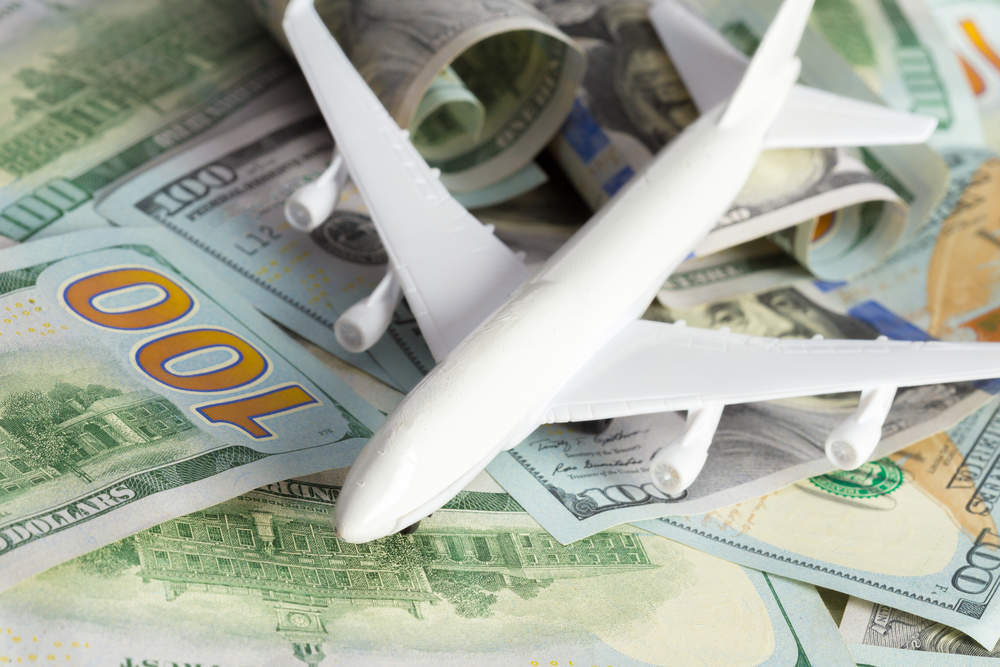
People aren’t happy about hidden fees pushing the cost of air fares upwards when booking flights.
And the growing consolidation in the aviation industry, coupled with the convergence of business models – full service carriers are increasingly adopting policies associated with low cost carriers – may be an early sign that soon people may be faced with even higher fares due to declining competition.
The Civil Aviation Authority (CAA) has launched an investigation into airline hidden charges, which often only become visible to people when they reach the final stages of the booking process.
Such fees are charged for seat allocation, baggage allowance, food and drinks and amendments in the names on boarding passes.
Given that budget airline fares are substantially lower than the ones offered by premium airlines, such fees present key sources of revenue for low cost airlines.
Low cost airlines such as Ryanair and easyJet, but also full service carriers such as Emirates are under the spotlight for allegedly deliberately splitting families, groups of friends and couples, meaning they pay a premium for choose specific seats.
How well do you really know your competitors?
Access the most comprehensive Company Profiles on the market, powered by GlobalData. Save hours of research. Gain competitive edge.

Thank you!
Your download email will arrive shortly
Not ready to buy yet? Download a free sample
We are confident about the unique quality of our Company Profiles. However, we want you to make the most beneficial decision for your business, so we offer a free sample that you can download by submitting the below form
By GlobalDataAccording to the CAA, seating allocation policies end up earning companies up to £390 million ($551 million) a year solely in the UK, as customers are paying for such ‘extras’ to ensure they will be seated together.
The CAA also estimated that one in five of those who do not wish to pay extra to select their seat, would be seated apart from their companion.
Yet, in the case of Ryanair, the probability of being split up reached 35%. Since 2016, the airline has also made it compulsory for an adult travelling with a child under the age of 12 to pay £4 to reserve a seat.
Such policies are increasingly being met with complaints, creating frustration among customers and hence urging the CAA to investigate this issue in an attempt to make the cost of flying more transparent.
The UK’s aviation minister, Baroness Sugg, said:
We will explore ways to improve and enhance the information available, so passengers can make well-informed decisions before deciding who to fly with.
In particular, the CAA will explore mechanisms that allow customers to view the final price – inclusive of additional charges – from the initial steps of the booking process.
At first glance such a measure is expected to shake up the airline industry, influencing the choices of consumers, with premium airlines re-gaining market share over low cost carriers, as the fares offered by the latter ones are becoming more expensive.
However, this is not going to be the case.
Budget airlines, and the subsequent abundance of lower fares, have allowed many people to travel for the first time, and others to travel more regularly. Ryanair for instance offers fares from as low as £4.99, so even when buying all of the ‘extras’, it is often hard for more expensive airlines to compete with such price.
Almost all (91%) of people around the world say cost is very important or important when choosing an airline when they go on holiday, according to a recent GlobalData survey.
Therefore, irrespective of the frustration and the growing complaints regarding hidden fees, low cost carriers are expected to remain popular, as long as prices remain lower than the ones offered by premium airlines.
Yet, this issue raises substantial concerns about the future of aviation. Low cost carriers have given rise to an environment of fierce competition in the skies that is increasingly painful for legacy carriers, but also for less profitable budget airlines.
During the past year we witnessed the bankruptcy of Air Berlin, Alitalia and Monarch. As a growing number of airlines are entering administration, consolidation in Europe is expected to intensify.
At the same time, we are entering a new period in which few airlines will dominate the industry; the chief executive of Ryanair, Michael O’Leary, predicted that five years from now “there will be just five European airlines, with Ryanair and its competitor EasyJet, of course, being two of them”.
The smaller the number of companies to put pressure on market leaders, the greater the ease with which such players could raise prices, taking us back to the bad old days of air travel.




Related Company Profiles
Ryanair Holdings Plc
easyJet Plc